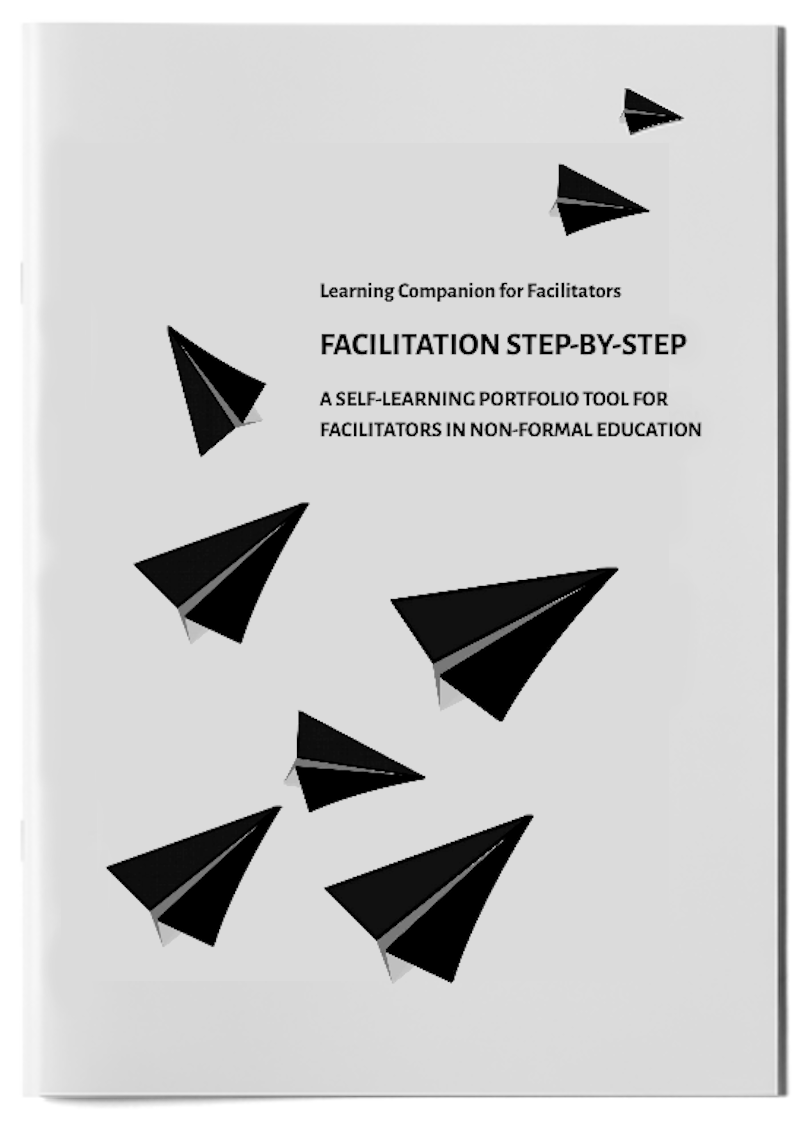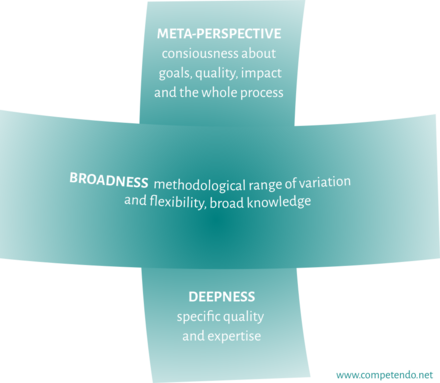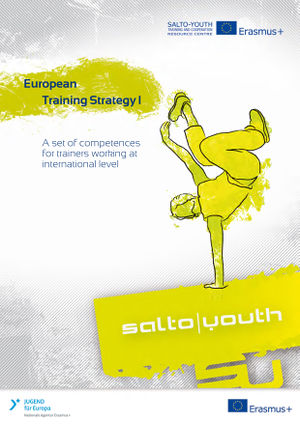Quality
The quality of a training is obviously depending from different circumstances. The educational context and the learning institution contribute to quality outcome. Or quality is relying on supportive outer circumstances in the society or environment. In particular the needs and motivations of the learners influence learners ability to gain competencies.
Although these are all aspects a facilitator is not primarily responsible for, it is in particular their responsibility to shape conditions that enable qualitative learning. Furthermore, the way of facilitating and moderating has a direct impact on the achievements. The cooperative performance of a facilitator team influences the process leading toward these achievements.
Obviously we need to consider all: the ability of shaping learning conditions in a certain environment, the educator's general ability to accompany and lead a group on their way toward a goal, the specialization or specific mastery in a person. Not to mention, that a team of educators might be aware of their complementary competencies and aim to activate them best. "The quality of trainers – i.e., their professional expertise combined with their ability to perform within an educational framework – has a crucial impact on the quality of the training activities they deliver."[1]
Facilitation Competence
- Shaping the learning space and the appropriate learning conditions
- Accompanying and leading a group toward a goal, choosing and using methodology adequately
- Identifying criteria and assessing success, quality and impact on a meta-level
- Having and extending specific deeper interest, knowledge and experience
Examples for Competency Frameworks for Educators
Similar to frameworks for learners, the competency descriptions fo facilitators, teachers, trainers or educators are following the idea of competency as a combination of knowledge, skills and attitudes. They aim to fit to broad range of formal and non-formal educational contexts. Competency Frameworks For Educators
Featured: ETS Trainer Competencies in EU
The Steering Group of the European Training Strategy of Youth in Action asked for a competency framework for non-formal education, in particular in a youth context and in regard to groups with diverse cultural backgrounds.
This effort is part of the overarching European Training Strategy in the field of Youth of the European Commission. It is caring about quality and acceptance of learning in youth education and youth work in Europe.
The here presented competences for trainers working at international level are one example for a holistic competency set, covering a lot of aspects, we are illustrating in the Competendo toolbox.[2]. The editors and initiators behind the framework are coordinated by the SALTO Training and Cooperation.
Understanding and facilitating individual and group learning processes
|
Learning to learn
|
Designing educational programmes
|
Cooperating successfully in teams
|
Communicating meaningfully with others
|
Intercultural competence
|
Being civically engaged
|
References
- ↑ JUGEND für Europa/SALTO Training and Cooperation: Gisele Evrard Markovic (ed.): European Training Strategy. A competence model for trainers working at international level; Bonn 2018
- ↑ JUGEND für Europa/SALTO Training and Cooperation: European Training Strategy ll - Amended version of competences for trainers working at international level with criteria and indicators, Bonn 2014






